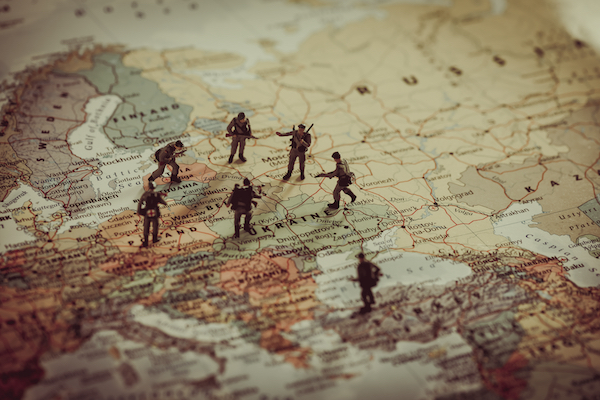![By Neuroxic (Own work) [CC BY 4.0 (http://creativecommons.org/licenses/by/4.0)], via Wikimedia Commons](http://thegreatrecession.info/blog/wp-content/uploads/DescendingBalloon.jpg) The Fed’s rise in rates has turned my counterintuitive predictions true by resulting in a rapid rise in the stock market. Trading only had about an hour and half left after the Fed put out its word; so, the Dow only rose about 200 points. I wouldn’t be surprised to see the euphoria kick in full force today and rocket toward something remarkable like 700 points.
The Fed’s rise in rates has turned my counterintuitive predictions true by resulting in a rapid rise in the stock market. Trading only had about an hour and half left after the Fed put out its word; so, the Dow only rose about 200 points. I wouldn’t be surprised to see the euphoria kick in full force today and rocket toward something remarkable like 700 points.
How do soaring stocks square with my predictions of an economic apocalypse?
US stocks are rising on pure adrenaline. Nothing changed in a positive direction economically because of the Fed’s announcement. A rise in rates isn’t economic stimulus. Companies didn’t start making more money. Global recession didn’t slow down. Customers didn’t start buying more Christmas toys or all run out and buy a car. Employment didn’t jump upward.
In fact, the main data that came out on Wednesday was all about growing recession in the US:
Industrial production came in at the Econoday low forecast, down a very sharp 0.6 percent in November. This is the biggest drop in 3-1/2 years. Utility output fell a monthly 4.3 percent after falling 2.8 percent in October. Mining, reflecting low commodity prices and contraction in energy extraction, has also been week [sic.], down 1.1 percent for a third straight decline. (Bloomberg)
And I’ll let NewsMax summarize the main economic news of the previous two days:
Oil prices plunged, junk bonds hit a two-and-a-half-year low, stocks took a nearly 4 percent hit, a junk bond fund halted withdrawals, the country’s biggest pipeline operator cut its dividend by 75 percent and two of the biggest mining companies in the world suspended theirs completely.
Continue reading “Epocalypse When? When markets crash upward”









![By Neuroxic (Own work) [CC BY 4.0 (http://creativecommons.org/licenses/by/4.0)], via Wikimedia Commons](http://thegreatrecession.info/blog/wp-content/uploads/DescendingBalloon.jpg) The Fed’s rise in rates has turned my
The Fed’s rise in rates has turned my